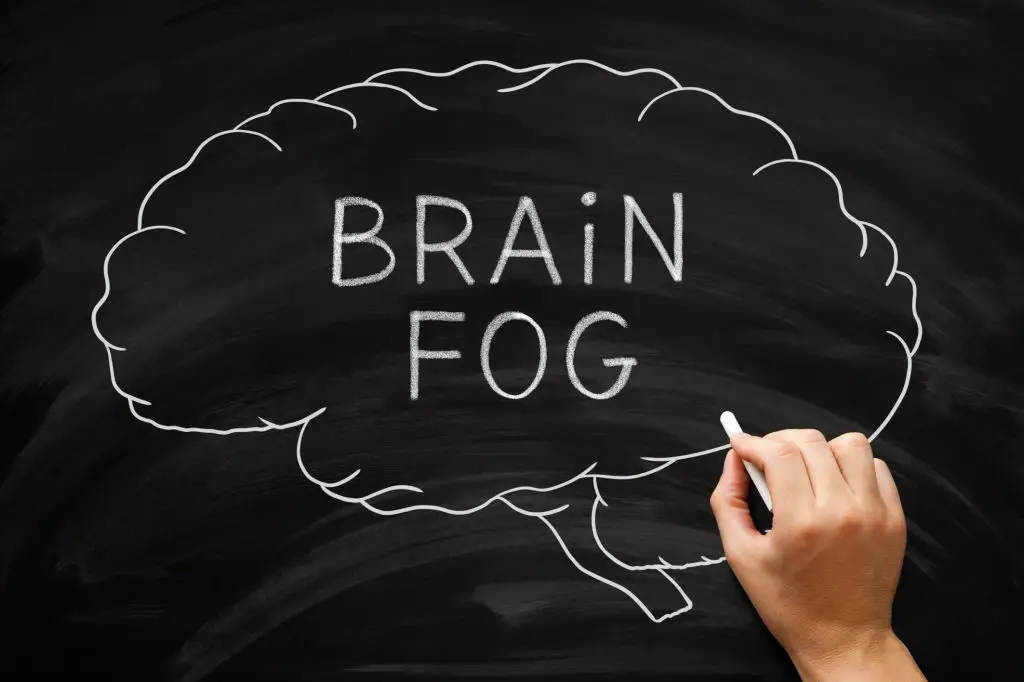12 Adrenal Exhaustion Alarms: Subtle Signs Your Stress Glands Are Draining Your Energy
Adrenal exhaustion—sometimes called “adrenal fatigue”—is a term you’ll see in wellness circles much more than in mainstream medicine. The science is still evolving, and while major medical organizations don’t formally recognize “adrenal fatigue,” they agree that chronic stress can wear down our sense of vitality and well-being. It’s important to remember: these alarms are not a diagnosis, but gentle nudges to tune in and take care. Noticing them is an act of self-awareness and an opportunity to create change, not a cause for self-blame or doom. In this guide, we’ll uncover 12 subtle signs your body might be giving you when your stress glands are stretched too thin. You won’t find hype or shame here—just clear, compassionate explanations and doable steps to help you feel more vibrant. Let’s explore these gentle alarms together and see how small shifts in self-care can restore the energy you deserve.
1. Persistent Morning Fatigue

There’s tired, and then there’s the kind of morning fatigue that no alarm clock can conquer. If you’re waking each day feeling as if your batteries never fully charged—even after what seems like enough rest—you’re experiencing a common alarm of adrenal exhaustion. This isn’t just about getting to bed later or being a “night owl.” When everyday stress starts to pile up, your stress glands can become less effective at signaling when it’s time to feel alert. Science shows that chronic stress can disrupt your natural sleep-wake cycles, making restorative sleep harder to achieve. You might find yourself slapping the snooze button more often or dragging through your morning must-dos. This persistent heaviness isn’t a personal failing—it’s your body waving a gentle flag for support. Start by creating a simple morning ritual: stretch, sip a glass of water, let in some sunlight. Even these small changes can ease your body back toward its natural rhythm. If mornings remain a struggle, consider talking to a trusted health professional. Remember, honoring your body’s call for rest is a sign of wisdom, not weakness.
2. Salt or Sugar Cravings

Unexplained urges for salty chips or that afternoon cookie stash might be signaling more than just a passing snack attack. Wellness experts often point out that chronic stress can send your adrenal glands into overdrive, impacting the hormones that help balance salt and sugar in your body. This subtle shift can make your body crave what it thinks it needs to restore energy or maintain balance. Medical research links stress to changes in eating patterns—sometimes nudging us toward less-than-ideal snacks for comfort or quick energy. Cravings aren’t something to scold yourself about; they’re cues worth listening to. Try keeping healthier alternatives on hand, like roasted nuts or fruit, and notice when cravings strike. If you find salt and sugar urges are constant, see this as a friendly prompt to check in on your stress levels and self-care, not a reason for guilt.
3. Reliance on Caffeine or Energy Boosters

For many, a morning coffee is a cherished ritual. But when one cup turns into several, or energy drinks become survival tools, it’s worth a pause. Relying on caffeine or other boosters can be a subtle sign your stress system is under strain. Over time, stress-worn glands might struggle to keep energy steady throughout the day, leaving you reaching for yet another pick-me-up. Caffeine can temporarily mask tiredness, but it may also disrupt your body’s natural rhythm, especially if you drink it late in the day. If you notice a growing dependence on quick fixes, experiment with gentle swaps—think herbal tea, a brisk walk, or a few deep breaths to reset your energy. These simple practices, while not instant solutions, are steps toward building more resilient, lasting vitality.
4. Midday Slump That Feels More Than Ordinary

It’s perfectly normal to feel a bit drowsy after lunch, but if you’re hit with crushing fatigue most afternoons—regardless of your schedule or diet—this might be a classic sign of adrenal overload. This type of midday slump goes beyond ordinary tiredness. It might leave you unfocused, irritable, or longing for your bed before dinner. Research highlights how chronic stress can flatten your energy curve, making dips sharper and recoveries slower. If this sounds familiar, start with small, sustainable changes: gentle movement, a glass of water, or a nourishing snack can help rebalance your system. No need for blame—see your afternoon lull as a message from your body, inviting you to pause, breathe, and reset in whatever way works for you.
5. Difficulty Handling Stress

We all encounter stress—but if even small setbacks or daily hassles now leave you feeling unusually overwhelmed, it could be your stress glands sending an SOS. Difficulty handling everyday challenges is a key, often-overlooked marker of adrenal exhaustion. Emotional resilience naturally ebbs and flows, but chronically depleted adrenal function can make even routine bumps feel like mountains. Evidence shows that ongoing stress hormones can heighten sensitivity and diminish recovery time after stressful events. Building small self-soothing habits—taking deep breaths, breaking large tasks into doable steps, or stepping outside for fresh air—can offer your nervous system a compassionate reset. And please, give yourself permission to feel, without judgment. Acknowledging when you’re maxed out is the first step to healing, never a sign of defeat.
6. Brain Fog or Trouble Concentrating

If your mind feels as though it’s thick with clouds, making simple decisions or recalling everyday facts suddenly tricky, you may be experiencing the telltale “brain fog” common with chronic stress. This isn’t about aging or lack of willpower. When your stress glands are under strain, focus and memory are often the first to slip, leaving you feeling scattered or forgetful. Evidence links persistent, high stress to difficulty concentrating and increased mental fatigue. Try integrating small “brain breaks” throughout your day—stand, stretch, close your eyes, or even jot a few thoughts in a journal. These gentle resets help clear mental clutter, supporting your mind’s natural clarity and creativity. Remember, brain fog isn’t a personal flaw. It’s a nudge to slow down and gently nurture your mental well-being.
7. Sleep Disturbances (Falling/ Staying Asleep)

Sleep can become elusive when your stress glands are working overtime. You might find yourself tossing and turning, waking up multiple times, or, despite managing to sleep, still feeling unrefreshed come morning. Wellness experts often call this the “wired but tired” phenomenon, where high nighttime stress hormones make deep rest hard to come by. Although poor sleep is incredibly common, persistent trouble falling or staying asleep—without another clear cause—can signal chronic stress. Consider introducing a calming pre-bed ritual: dim lights, gentle stretching, or soft music. Skip screens before sleep when possible. Nurturing your evening self-care is less about perfection and more about consistency, helping to gently restore your sleep sanctuary over time.
8. Unexplained Aches or Tension

Have you noticed random aches, tightness, or tension with no obvious cause? Chronic low-level stress can physically settle into your muscles and joints, often in subtle ways. These aches may come and go, leaving you feeling heavy or stiff even if you haven’t upped your activity or taken a spill. Research shows stress hormones can amplify the body’s pain signals or cause you to hold tension without realizing it. Instead of pushing through discomfort, try pausing to check in: Are your jaw and shoulders relaxed? Could you benefit from a midday stretch? Honoring your body’s request for movement or rest is a powerful act of self-compassion—one that supports lifelong resilience.
9. Low Mood or Motivation

It’s normal to have days when motivation dips or emotions feel a little duller than usual. But if these low spells become persistent—going beyond an occasional mood swing—your stress system may need attention. Ongoing stress can quietly dampen the “spark” that fuels excitement, joy, or drive. Wellness research points to the strong connection between emotional well-being and adrenal balance. While it’s important not to ignore persistent mood lows (especially if severe or accompanied by other concerns), give yourself room for gentle self-checks. Celebrate tiny wins, connect with friends, or explore new interests—even five minutes on a favorite hobby can rekindle motivation. And always know: seeking help is an act of strength, not weakness.
10. Higher Susceptibility to Colds and Illness

Feeling like you catch every bug going around? Chronic stress may play a part in why minor illnesses seem to find you first. While your immune system is complex, mounting evidence shows high stress can affect its ability to fight off germs as efficiently as usual. If you’re getting sick more often or taking longer to bounce back, don’t panic—use these signals as reminders to nurture your basics: nutritious food, steady rest, and gentle movement. Consistent self-care (no need for heroics!) can help shore up your body’s natural defenses, with small choices adding up over time. If you have ongoing immunity concerns, check in with a trusted healthcare provider for tailored support.
11. Lightheadedness on Standing

Do you ever stand up quickly and feel dizzy or see “stars,” especially during stressful periods? While occasional lightheadedness can have many benign causes, when it becomes frequent, it may trace back to your body’s stress response. Chronic stress can occasionally affect how your body manages blood pressure and hydration. First things first: stay well-hydrated, and consider rising more slowly. These minor adjustments can reduce dizzy spells in most cases. If you notice sustained or severe dizziness, connect with a healthcare provider to rule out underlying causes. You deserve to feel steady and grounded at every step of your day.
12. Reliance on “Second Wind” at Night

When you drag through most of the day, only to rediscover your energy late in the evening, your body could be running on stress-fueled “second wind.” For many, this late-night alertness feels like a burst of productivity—or at least a chance to finally catch up. But it’s often a sign that natural rhythms have gone off-kilter, nudged along by stress hormones that “wake up” after dark. This pattern is common in those juggling busy lives, shifting work hours, or chronic stress. To gently realign your cycle, try winding down with soft lighting, a cozy book, or a relaxing playlist. While you may not become a morning person overnight, small bedtime tweaks can gradually help you reclaim your evenings for rest and repair.
Final Thoughts: Listening to the Whispers of Your Well-Being

Noticing subtle shifts in your energy, mood, or habits isn’t a cause for alarm—it’s self-knowledge in action. Each of these twelve signs is your body’s way of inviting you to slow down, tune in, and offer yourself more compassion. Remember, these alarms are not about diagnosis or dread; they are about noticing, honoring, and responding with the gentlest forms of self-care available to you. Wellness is not an all-or-nothing journey. It’s a mosaic made up of tiny, loving shifts and mindful attention. Celebrate your awareness as a superpower. Reach out for help when needed, trust your instincts, and find comfort in knowing you’re not alone in this journey. Vitality is less about perfection, more about progress—and your next small step might just be the beginning of renewed energy and peace.
Powered by Froala Editor